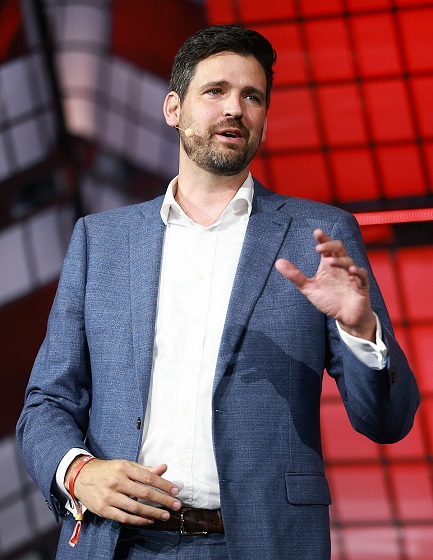Opinion
Why is Edgar Industrial Zone empty?

As I campaign for the UCP nomination for Red Deer North I continually ask voters to share their priorities and concerns. By far the most frequently heard concerns are those of the economy, the quality of jobs available, and the cost of living.
Since assuming power in 2015 the NDP government has enacted a series of changes that have made the cost of living and doing business in our province far more expensive. Not only that, these changes exacerbated the effects of the worst recession in a generation. A quick drive through Edgar Industrial Zone is evident of the costly and uncompetitive policies our government has legislated.
So let’s go through a quick rundown of some of the more devastating changes:
Increased corporate tax rates by 20%
Instituted the carbon tax increasing the cost of doing pretty much everything
Changes to the Municipal Government Act have increased the cost of new homes by thousands
Early shutdown of coal power plants increased the cost of electricity and cost taxpayers billions
It is no secret that much of Alberta’s prosperity is due to our resource sector. This is especially true for Red Deer with our disproportionate presence in the oil & gas service sector and equipment manufacturing. Unquestionably weakness in the sector was due in part to an oversupply of oil coupled with low prices. However, as oil prices rebounded drilling and the service activity that goes along with it have moved to other lower cost jurisdictions.
As the NDP raised the cost of doing business, activity has fled Canada while states like North Dakota, Pennsylvania, and Texas have seen record growth. Through my work at the Chamber it is a regular occurance to hear from local businesses that are struggling to get business and others that are moving asset abroad
So thanks to a higher cost of doing business Alberta still has lower private sector employment than we did in 2014, less capital investment, and higher crime.
If successful, one of my primary focuses as MLA will be taking action to restore our competitiveness and bring businesses and the high-paying jobs that go along with them back to areas like Edgar Industrial Zone.
Reg Warkentin is running for the UCP nomination in his forever-home of Red Deer North and Policy and Advocacy Manager of the Red Deer & District Chamber of Commerce
International
Kazakhstan joins Abraham Accords, Trump says more nations lining up for peace

Kazakhstan is officially joining the Abraham Accords, becoming the first nation to do so during President Trump’s second term — and signaling a renewed push for peace and stability across the Middle East and Central Asia. Trump made the announcement Thursday on Truth Social, writing, “I just held a great call between Prime Minister Benjamin Netanyahu, of Israel, and President Kassym-Jomart Tokayev, of Kazakhstan. Kazakhstan is the first Country of my Second Term to join the Abraham Accords, the first of many.” He continued, “This is a major step forward in building bridges across the World. Today, more Nations are lining up to embrace Peace and Prosperity through my Abraham Accords. We will soon announce a Signing Ceremony to make it official, and there are many more Countries trying to join this club of STRENGTH. So much more to come in uniting Countries for Stability and Growth — Real progress, real results. BLESSED ARE THE PEACEMAKERS!”
Secretary of State Marco Rubio echoed the announcement, calling Trump “the world’s ultimate negotiator.” Rubio said in a post that “the American people have the ultimate advocate and champion for peace in @realDonaldTrump,” adding that Kazakhstan’s entry “builds on President Trump’s unmatched record of delivering results.” The move represents a significant diplomatic step for Kazakhstan, a Muslim-majority nation that has long sought to balance relations between Russia, China, and the West while maintaining economic ties with Israel and the United States.
According to senior adviser Steve Witkoff, the agreement could be just the start of another wave of normalization. Witkoff told Breitbart News there is “big energy” behind four to six additional countries joining “in the next couple of months,” pointing to Lebanon, Syria, Libya, Armenia, and Azerbaijan as likely candidates. Former Arkansas Governor and U.S. Ambassador to Israel Mike Huckabee similarly suggested during a Breitbart Founders Club Roundtable that Saudi Arabia remains the most consequential prospective addition. Huckabee highlighted the United Arab Emirates’ economic transformation since joining the Accords as an example of the tangible benefits for participating nations.
Rubio has also met with Syrian interim President Ahmed al-Sharaa, who expressed interest in lifting sanctions to attract foreign investment. While al-Sharaa acknowledged that joining the Abraham Accords may not yet be realistic for Syria given tensions with Israel, he signaled openness to long-term normalization under the right conditions.
Trump, who returned to office in January, vowed throughout his campaign and transition to expand the Abraham Accords beyond their original signatories — Israel, the UAE, Bahrain, Morocco, and Sudan — and hinted earlier this year at progress with Saudi Arabia. “They’ll join in their own time,” he told business leaders at the 2025 Saudi-U.S. Investment Forum. Saudi Crown Prince Mohammed bin Salman is scheduled to visit Washington on November 18, while al-Sharaa is expected to arrive next week for meetings at the White House.
The original Abraham Accords, signed in September 2020, reshaped diplomatic relations in the Middle East under Trump’s first term. With Kazakhstan now on board and more nations signaling interest, Trump’s second-term foreign policy is again centering on a message of peace through strength — and a vision of an American-led era of regional cooperation grounded in security, prosperity, and faith.
Business
Carney’s Deficit Numbers Deserve Scrutiny After Trudeau’s Forecasting Failures

From the Frontier Centre for Public Policy
By Conrad Eder
Frontier Centre for Public Policy study reveals a decade of inflated Liberal forecasts—a track record that casts a long shadow over Carney’s first budget
The Frontier Centre for Public Policy has released a major new study revealing that the Trudeau government’s federal budget forecasts from 2016 to 2025 were consistently inaccurate and biased — a record that casts serious doubt on the projections in Prime Minister Mark Carney’s first budget.
Carney’s 2025–26 federal budget forecasts a $78.3-billion deficit — twice the size projected last year and four times what was forecast in Budget 2022. But if recent history is any guide, Canadians have good reason to question whether even this ballooning deficit reflects fiscal reality.
The 4,000-word study, Measuring Federal Budgetary Balance Forecasting Accuracy and Bias, by Frontier Centre policy analyst Conrad Eder, finds that forecast accuracy collapsed after the Trudeau government took office:
- Current-year forecasts were off by an average of $22.9 billion, or one per cent of GDP.
- Four-year forecasts missed the mark by an average of $94.4 billion, or four per cent of GDP.
- Long-term projections consistently overstated Canada’s fiscal health, showing a clear optimism bias.
Eder’s analysis shows that every three- and four-year forecast under Trudeau predicted a stronger financial position than what actually occurred, masking the true scale of deficits and debt accumulation. The study concludes that this reflects a systemic optimism bias, likely rooted in political incentives: short-term optics with no regard to long-term consequences.
“With Prime Minister Carney now setting Canada’s fiscal direction, it’s critical to assess his projections in light of this track record,” said Eder. “The pattern of bias and inaccuracy under previous Liberal governments gives reason to doubt the credibility of claims that deficits will shrink over time. Canadians deserve fiscal forecasts that are credible and transparent — not political messaging disguised as economic planning.”
The study warns that persistent optimism bias erodes fiscal accountability, weakens public trust and limits citizens’ ability to hold government to account — a threat to both economic sustainability and democratic transparency.
-

 Energy2 days ago
Energy2 days agoEby should put up, shut up, or pay up
-

 Business2 days ago
Business2 days agoPulling back the curtain on the Carney government’s first budget
-

 Daily Caller2 days ago
Daily Caller2 days agoUS Eating Canada’s Lunch While Liberals Stall – Trump Admin Announces Record-Shattering Energy Report
-

 Business2 days ago
Business2 days agoThe Liberal budget is a massive FAILURE: Former Liberal Cabinet Member Dan McTeague
-

 Business1 day ago
Business1 day agoCarney’s budget spares tax status of Canadian churches, pro-life groups after backlash
-

 COVID-191 day ago
COVID-191 day agoFreedom Convoy leader Tamara Lich to appeal her recent conviction
-

 Justice1 day ago
Justice1 day agoCarney government lets Supreme Court decision stand despite outrage over child porn ruling
-

 espionage21 hours ago
espionage21 hours agoU.S. Charges Three More Chinese Scholars in Wuhan Bio-Smuggling Case, Citing Pattern of Foreign Exploitation in American Research Labs







